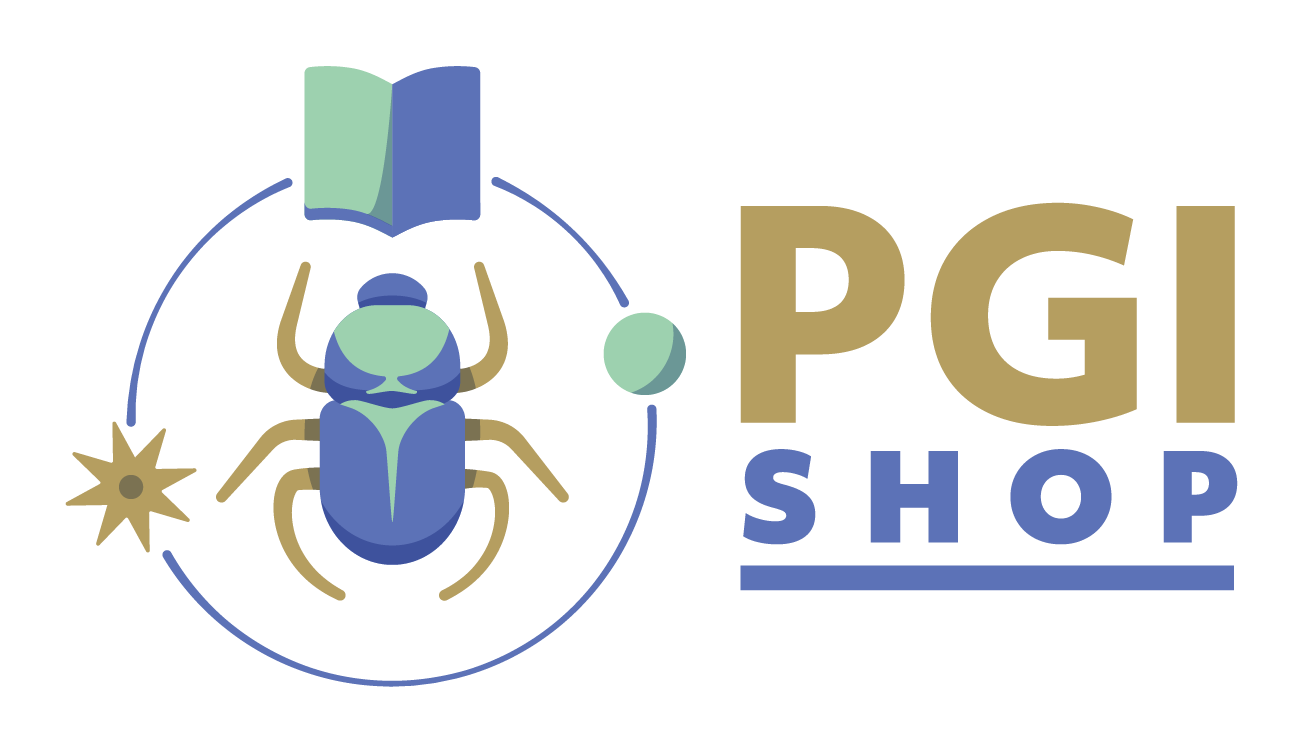Papyrus Bookmark - Chnum painted
painted bookmark 5 cm x 19 cm in protective cover and decorative ribbon
PGI bookmark
made of hand laid papyrus, manufactured in Egypt
silk-screen printed motif, cut edge
Chnum motif
Chnum, a creator god who formed humans and all things on the potter's wheel. Guardian and giver of the source of the Nile at Elephantine. Chnum was also generally the lord of water, the Nile, its floods, lakes and cataracts. He is depicted in human form with a ram's head and double-turned horns. He was worshipped in Elephantine and Esna.
Chnum was probably a supra-regional god and therefore belongs to the family of gods of the 1st Dynasty. The number of his cult sites can hardly be counted. His functions as a fertility god and the meaningful significance of his cult have encouraged the creation of legends about his abilities as a potter.
Chnum was the lord of the 1st cataract in Upper Egypt. From there he turned south to Nubia and north to Lower Egypt. His houses were numerous and the veneration he received was great. He created human beings because his father had given him the order to do so. Together with Satet and Anuket, he made sure that every year the Nile floods overflowed the banks and wetted the fields without causing any damage.
His father had assigned him the task of shaping people on his potter's wheel like the gods and also forming their ka. Thus Chnum bent daily to the Nile and gathered from its banks the mud which he moulded on his wheel, before storing them in the bosom of their mothers, where they grew up to be born, cared for by his indefatigable wife Heket. Thus he became the "father of fathers" and the "mother of mothers" and was praised in all places as the "giver of fertility and maker of gods, men, animals and plants".
Our papyrus offer
We offer bright, hand-laid natural papyrus from Egypt. From the size of a bookmark, over A4 and A3 up to oversizes of 92 x 192 cm, as well as various papyrus rolls, you are sure to find the right papyrus sheet. The design possibilities with papyrus are manifold. It can be inscribed with hieroglyphics or painted with various motifs. Tempera or watercolours, ink or felt-tip pens are suitable; it can even be printed with an inkjet printer.
Papyrus is a natural product
In the Nile Delta, papyrus leaves are still produced in the traditional way. Families in the countryside harvest the papyrus stems, which can be up to 6 metres high, and process the raw material into papyrus leaves with great skill. Carefully crafted papyri are produced in several steps, which always have an individual, handcrafted character.
The history
Papyrus has been produced and used as a writing material in Ancient Egypt since the 3rd millennium BC. It was always a highly valued product whose sole marketing rights lay with the Pharaoh. The German word "Papier" goes back to the Greek word "pápyros", which in turn is based on the ancient Egyptian word "pa-en-per-aa", which roughly means "the pharaoh's".
If papyrus is stored in a dry place, it has a very long life. Thus, papyrus scrolls or fragments that provided information about life in Ancient Egypt were and are still being found. The most famous papyrus scrolls are probably the Herculaneum Papyri, which were buried and preserved by the massive eruption of Vesuvius in 79 AD. Another 400,000 papyri from the ancient Egyptian Oxyrhynchus are still waiting to be deciphered and will once again bring much of interest to light. Julius Caesar is probably responsible for the greatest loss of knowledge in history. His soldiers set fire to the library of Alexandria, destroying thousands of important papyrus manuscripts.
Fair trade with Egypt
PGI buys Egyptian products directly from the producer. This allows us to bypass traders' stations and offer our customers favourable prices. But the Egyptian producers also benefit from this direct marketing, they achieve much higher prices for their products. We regularly visit our partners in Egypt and discuss the upcoming needs on site.

